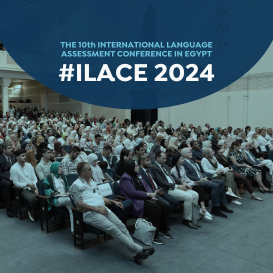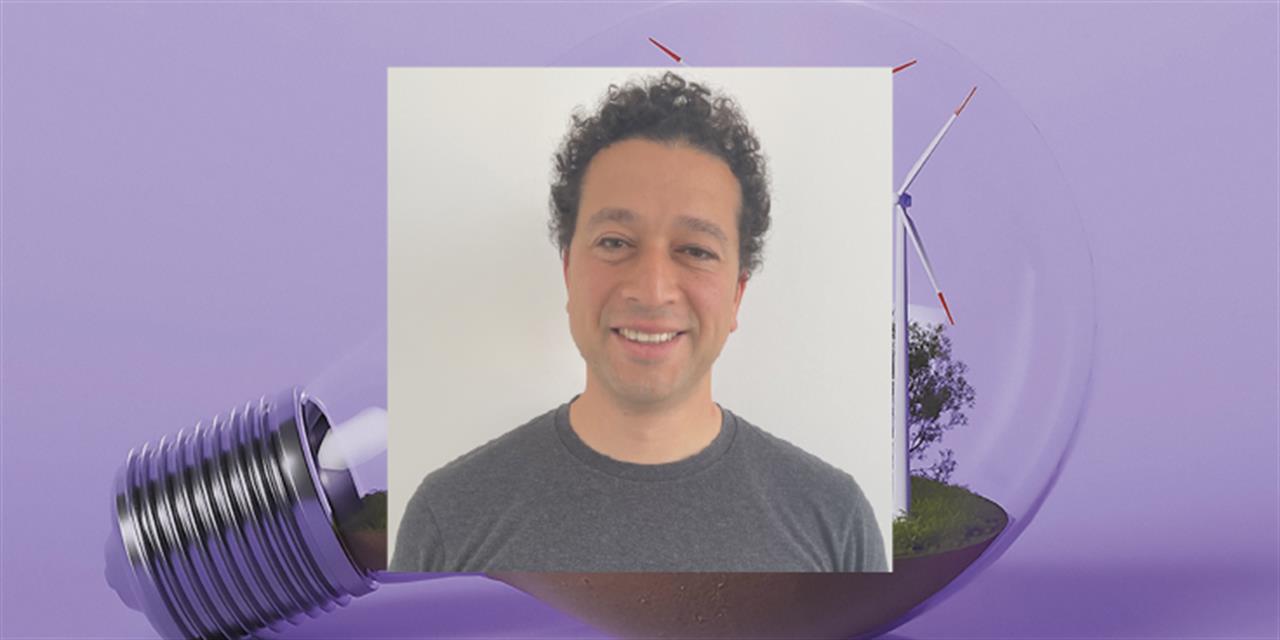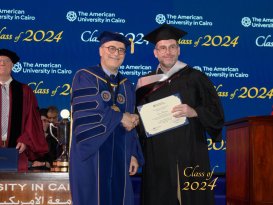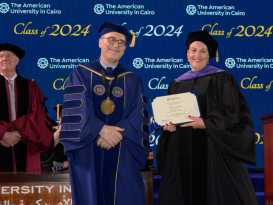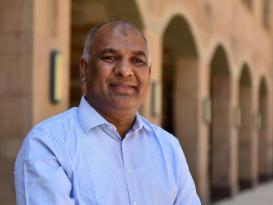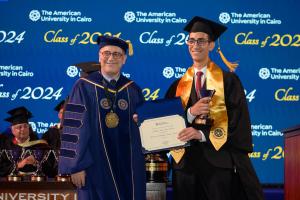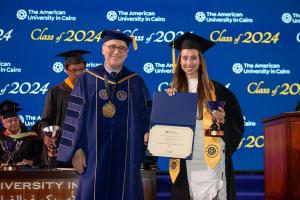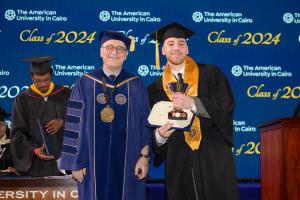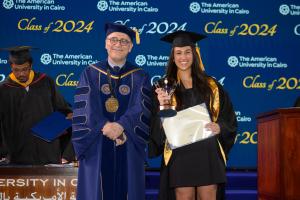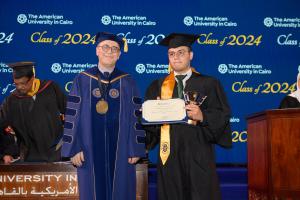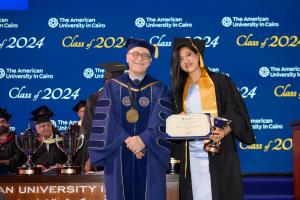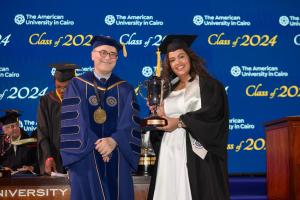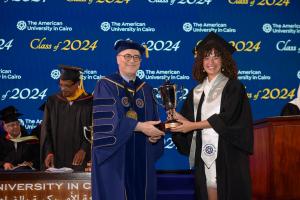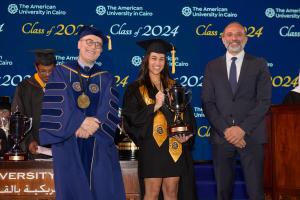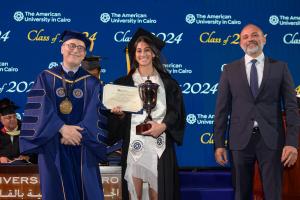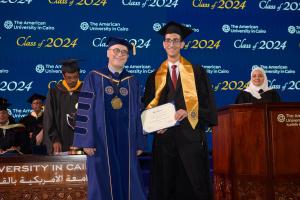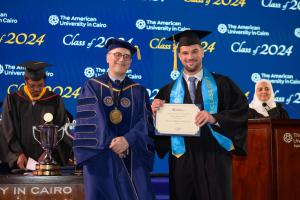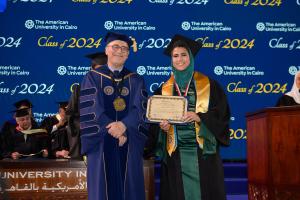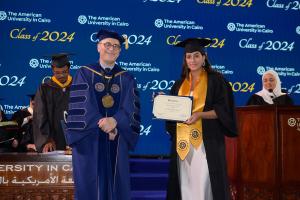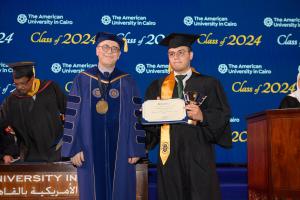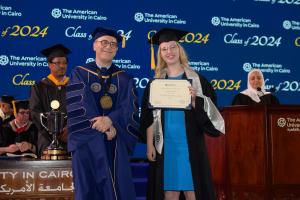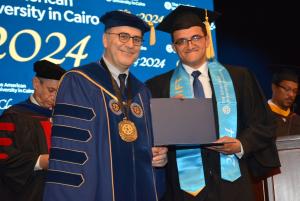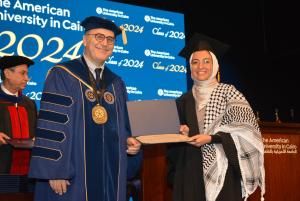If you’ve ever crammed for a final last minute and put on your favorite playlist to keep you focused, you’re not alone. But does listening to music while you work actually help your performance? Undergraduate students Yasmin Hamoud, Mariam Bourham and Mahmoud Malatawy’s project looked into this question, taking them all the way to Long Beach, California to present their work conducted as part of the Cognitive Psychology class taught by Jacquelyn Berry, assistant professor of psychology.
Unique in its focus on bilingualism, Hamoud, Bourham’s and Malatawy’s study had three groups: the first listened to mid-tempo then fast-tempo music in Arabic, the second listened to mid-tempo and fast-tempo music in Russian, and the third had no music at all. The participants, all of whom were Arabic and English speakers, completed both a logic-based task and a visual task while listening, and the students measured their performance and compared it with that of the other groups. They found that music negatively impacted performance irrespective of the type of task, the language, or the speed.
“In the past, there have been similar studies, but by focusing on English and Arabic bilinguals, we were able to contribute to an understudied part of the field,” Bourham says.
What makes studying bilinguals specific? “Bilinguals have rather different brains,” explains Bourham. “For example, they have more inhibitory powers: If I'm speaking in English, I might have better abilities to inhibit the Arabic side of my brain, and vice versa.”
The students also enjoyed the practical side of their work. ““For me, the most fun part was watching the psychological effects of the experiment, not only whether the participants were able to complete the test, but just examining whether they were agitated, distracted or felt accomplished.”says Hamoud.
Through their research, the students had the opportunity to present their findings at the National Conference on Undergraduate Research in Long Beach, California, with funding from a grant from the University.
“AUC really gave us the creative and academic freedom to research what we’re passionate about,” says Hamoud. “Being selected for the conference was a very surreal moment because I have always wanted to be able to present my research abroad.”
Their focus on bilingualism helped the students build community while at the conference. “Our poster actually gained a lot of traction, especially from bilinguals, which was really interesting,” says Bourham. “Many Arab Americans stopped at our poster, and we connected with a lot of other researchers through that. They really identified with our research, and I felt proud to be conveying an aspect of research that hasn’t really yet been covered.”
Mentoring and networking were also beneficial for the students. “There were a lot of professors at the conference from different disciplines, like architecture or chemistry, who would give us advice about how to continue our research. I felt really proud of the work we had done and demonstrating how interesting psychology can be,” says Hamoud.
Overall, the conference opened doors for the student to grow and develop both personally and professionally. “Through this experience, I got to explore the opportunities that AUC provides to people who want to present their research abroad,” Bourham says. “Afterward, we were invited to seek out additional conferences here in Cairo. Our initial opportunity had a domino effect, which had a huge impact on us.”
